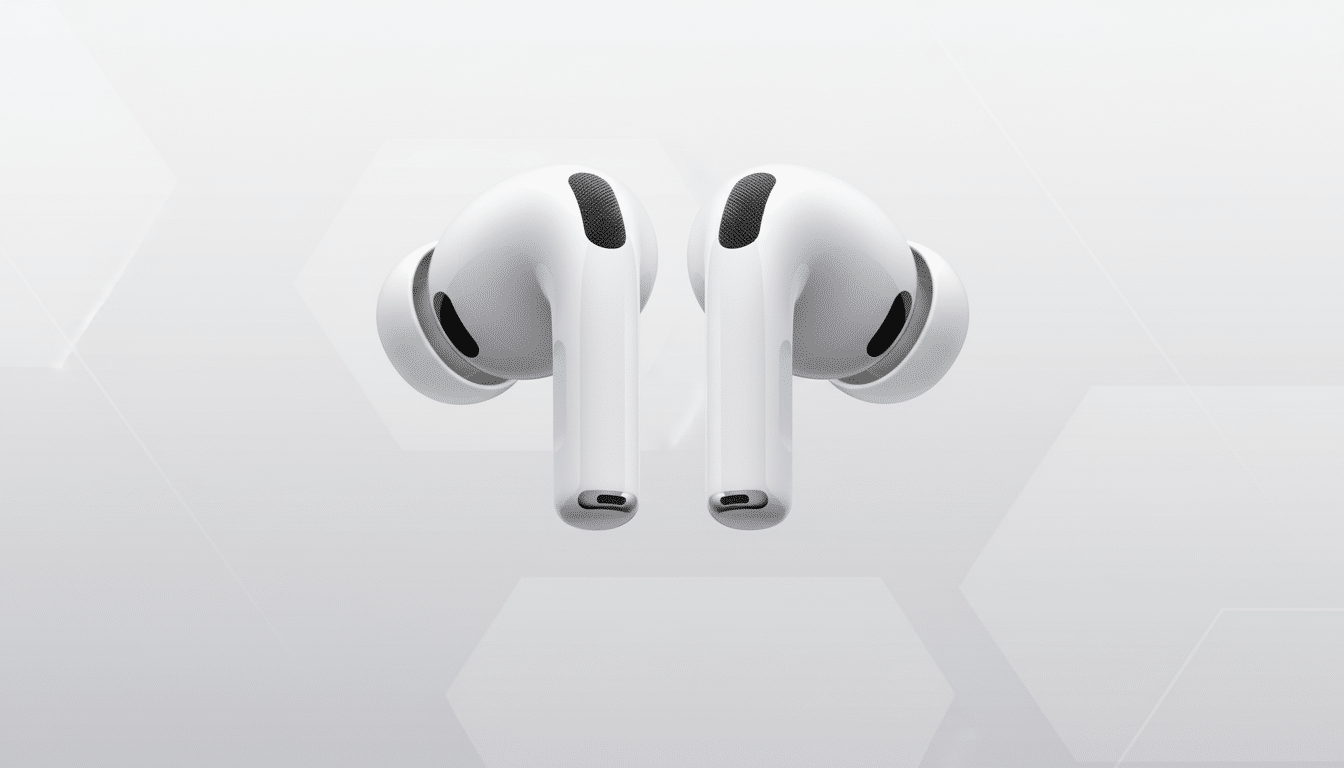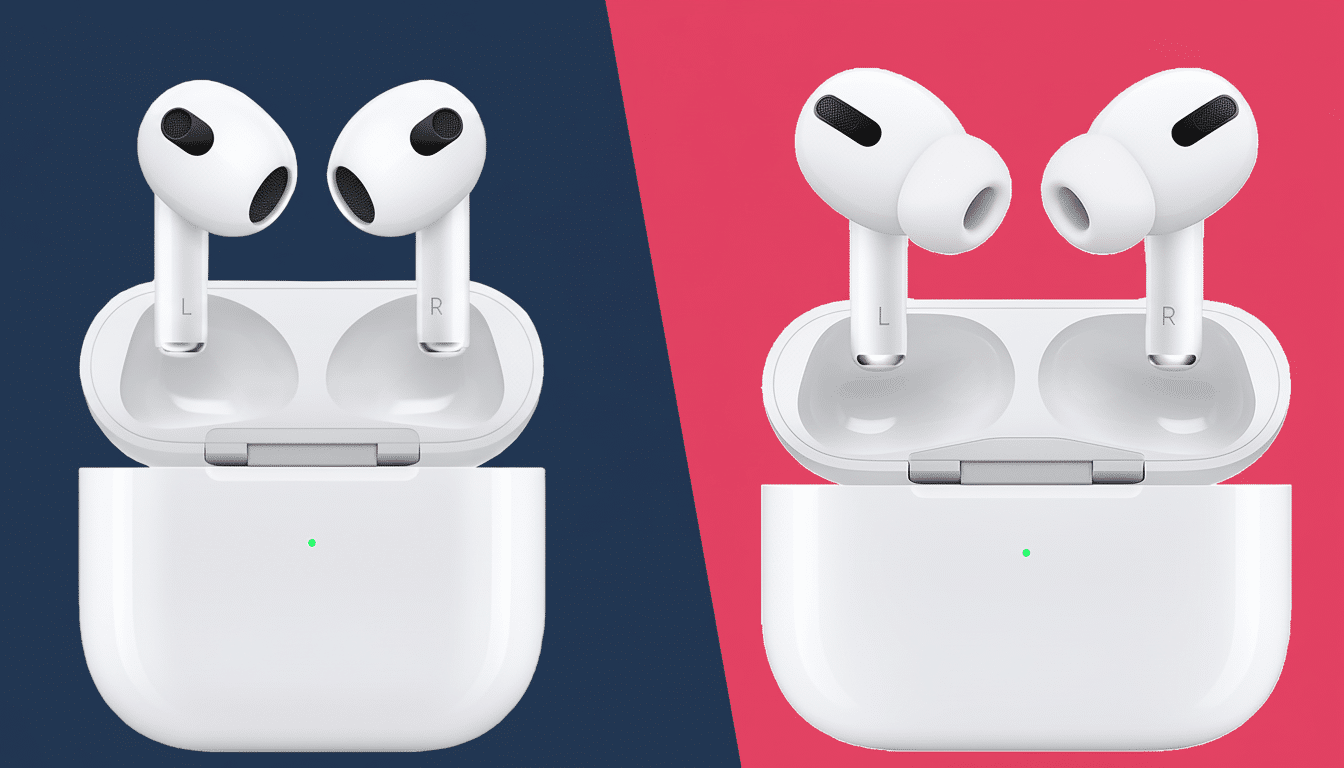I tested switching between AirPods Pro 3 and Airpods Pro 2 during my commutes, workouts and a couple long calls over the last week. Newest model: A blend of modest hardware changes and one headline addition — an onboard heart rate sensor. It’s more about not so much “what’s new?” and more “who actually benefits enough to upgrade?”
Both generations run on the same Apple H2 platform, support Bluetooth 5.3 and Personalized Spatial Audio with conversation friendly transparency tools, plus those hearing health features that have grown in importance.

The Pro 3, though, pack in extra-rugged protection, longer-lasting battery life, smarter drivers and smart finding features’ a string of small enough changes that for some users make the whole thing greater than the sum of its parts — but not for all.
Design and durability: The IP leap that counts
That leads to AirPods Pro 3, now with a rating of IP57 for both earbuds and case, up from the older USB‑C AirPods Pro 2’s IP54 and the original Lightning model’s IPX4. According to the ISO 60529 standard, that “5” signifies a level of dust protection that makes a meaningful difference, and the “7” means it’s tough enough for short submersion to be survivable — handy under actual use when an overstuffed pocket or spilled drink becomes a stress test.
In my experience, the case upgrade is the sleeping win. Many high-end rivals from Bose, Sony, Google and Samsung don’t rate their cases for water ingress at all. I wouldn’t recommend dunking any earbuds, obviously, but the Pro 3 case made it through a drizzle-soaked run and a gym-bag bottle leak that left me nervous about the Pro 2.
Health and sensors: heart rate from the ear
And the new heart rate sensor turns AirPods Pro 3 into a surprisingly capable workout partner. Readings during runs and interval workouts the ones I monitored, were within a few beats of those logged by a chest strap for steady-state efforts, and also closer than wrist-based trackers saw to me while running all-out — in line with findings from Stanford-affiliated and IEEE studies that have found ear-based photoplethysmography can outperform the wrist at high speeds.
Workouts on the earbuds start data flows into the Fitness app that capture heart rate, estimated calories and active time, meaning the earbuds are more purposeful for people who don’t want to wear a watch. Pro 3 and Pro 2 still offer hearing protection alerts as well as Live Translation support on compatible Apple devices, but it’s only Pro 3 that give you actionable cardio metrics from the ear.
Sound, ANC and transparency: iterative, not the other way around
The AirPods Pro 3 also comes with enhanced 10.7mm drivers and updated acoustic design. The tuning favors a more robust low end, with enhanced sub‑bass extension that is evident on electronic and hip‑hop tunes but doesn’t muddle vocals. The Pro 2 not lose any clarity and are very balanced; the Pro 3 just has more headroom and grip in busy mixes.

Active noise-cancellation is improved, too. Pros Pro 3 took out a touch more low‑frequency rumble on the subway, and wind handling was less choppy over phone calls. Apple’s transparency is still one of the easiest to toggle in-category on both models, but the Pro 3 pop voices out a tiny bit more clearly through noisey cafes, which I thought was nice when ordering coffee without taking an earbud out.
Battery, tracking, and connectivity
Battery life gets a utilitarian bump: I heard about two hours more between charges on the Pro 3 with ANC turned on than my never-been-charged-to-death Pro 2 set. For daily use, that’s an additional commute or gym visit before you have to touch the case — nothing mind-bending, but liberating.
Apple also inserts the U2 ultra‑wideband chip for Precision Finding, meaning that if you have an iPhone 15 or later younger than two years it is used to locate misplaced earbuds with higher precision, which I found particularly useful in other rooms and at crowded events. Both generations retain Bluetooth 5.3 and Apple’s auto‑switching between iCloud devices Apple; this also applies to standard multipoint in the cross-platform sense, which is worth flagging if you’re constantly jumping between non-Apple kit.
Price and value: where the math comes out
AirPods Pro 3 release for the usual premium, and AirPods Pro 2 have fallen to well under two hundred dollars at major retail. You can no longer purchase Pro (2) directly from Apple, but their sale price makes them one of the best values in the premium category.
You should upgrade to AirPods Pro 3 if you work out frequently and desire more dependable heart‑rate tracking without a watch, need stronger resistance against dust and water (especially coming from the Lightning Pro 2), travel regularly and covet Apple’s best ANC in an earbud, or consistently misplace earbuds and will take advantage of U2‑powered Precision Finding. You’ll immediately hear, feel those bass and mic upgrades.
Stay with air Pods pro 2 unless you mainly stream music and podcasts, take calls and use ANC on commutes without issue. They are built on the same H2 platform, which sounds great and supports many of the core software features; they’re still an easy recommendation on sale. Unless the battery health on your Pro 2 is still good then upgrading is a nice to have rather than a must.
Bottom line
In terms of being earbuds, AirPods Pro 3 are the better — read: more hard-wearing, more gym-friendly and a tiny bit stronger in sound and noise management. But the Pro 2 remain great, and heavily discounted. Pro 3 are worth it, for athletes, for frequent fliers and for anyone hard on gear. For everyone else, bank the savings and continue enjoying your already existing Pro 2.

